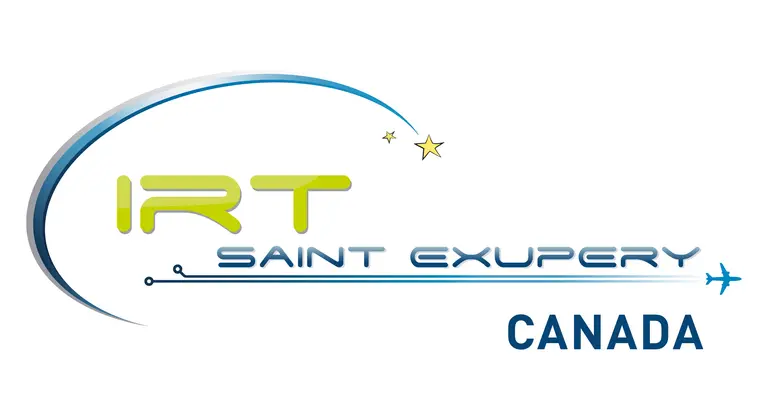
“Your task is not to foresee the future, but to enable it.” Founded on the values of pioneer pilot Antoine de Saint-Exupéry, a new partnership has formed between the leading AI research institute, Mila, and IRT Saint Exupéry Canada, which established a Montreal branch one year ago. This partnership confirms the commitment shared by both parties to advance research in the field of intelligent systems, with a focus on embedded intelligence in critical systems, particularly related to travel (i.e., planes and cars) and healthcare (medical devices).
IRT SAINT EXUPÉRY WITHIN MILA’S MONTREAL ECOSYSTEM: A MAJOR CATALYST FOR AI PROJECTS
At the heart of the partnership are two key players in scientific and technological research who have joined forces to promote best practices and tackle the scientific challenges of artificial intelligence driven by industry needs and societal impacts.
Recognized worldwide for its numerous breakthroughs in artificial intelligence, Mila distinguishes itself both in calibre and in number of its researchers. Thanks to this partnership, Mila is enriched by an original model of collaboration, in which industry and academia will work together in a common space to solve scientific questions arising from industrial concerns. This collaborative model, tried and tested at IRT Saint Exupéry in France since 2013, has led to the creation of a French-Canadian research program, *DEEL, mobilizing 14 industrial companies and roughly 20 academic researchers in Toulouse, Montreal and Quebec City, including researchers from Mila. IRT Saint Exupéry now has access to a cooperative space on Mila's premises. The proximity to Mila's researchers and industrial partners encourages the development of multi-partner French-Canadian research programs.
If the Canadian branch of IRT Saint Exupéry was selected to integrate within Mila’s ecosystem, considered one of the best in the world for AI research and development, it is thanks to the partnership established two years ago with the Quebec Institute for data valorization IVADO, which was founded to foster AI partnership projects with industry. After the DEEL project, initiated jointly and now integrated into the Toulouse Interdisciplinary Institute of Artificial Intelligence "ANITI" of which it is the driving force, IRT Saint Exupéry and its Quebec partners are now developing new expertise in the field of confidence AI and decision support for critical systems, with applications for land, air and space mobility, but also for health and the environment.
Yoshua Bengio, Scientific Director – Mila
"Mila’s mission is to develop the understanding of intelligent systems in order to put them at the service of all humanity in an ethical, inspiring and sustainable way. More than 500 world-class researchers at the Institute focus on deep learning and neural networks that shape today's intelligent systems. This partnership with IRT Saint Exupéry Canada broadens our horizons and our network. We are proud to make concrete through this partnership the commitments of collaboration between Canada and France in the field of artificial intelligence.”
Geneviève Fioraso, President – IRT Saint Exupéry
"I am convinced that collaborations with the researchers, engineers, laboratory students and partners of the Mila ecosystem in Montreal will be very stimulating for the IRT Saint Exupéry teams in Canada as well as in Toulouse. By working closely with the Mila Institute, we are going to accelerate our work and strengthen our expertise in AI, thus enhancing the reliability, safety and competitiveness of the fields concerned with critical and complex systems: air, space and ground transportation, medical devices and the environment. Our longstanding partnership with IVADO and CRIAQ in Quebec allows us today, alongside Mila, to achieve a new level of deep learning and understanding of intelligent systems. This new alliance with the French-speaking centre of excellence in AI, based on shared scientific and ethical values, also illustrates the willingness of the technological research institutes to open up internationally.”
Guillaume Gaudron, CEO – IRT Saint Exupéry Canada
"We are really excited to join Mila. Working in this privileged environment and close to the very best researchers in the field represents an unprecedented opportunity for the institute to showcase its skills and respond to the deep concerns raised by artificial intelligence. We are also pleased to be able to offer a very unique collaboration model, one which brings together different actors to address common, shared and open challenges. We are mobilizing artificial intelligence on future topics such as the quantum computer, the autonomous vehicle, medical applications (diagnosis of rare diseases), satellites, and more. These are all complex and compelling subjects that need to be supported by very high-level scientific research, and require the use of AI algorithms that are robust, reliable, justifiable and, in the future, certifiable.”
About Mila:
Founded in 1993 by Professor Yoshua Bengio of the Université de Montréal, Mila is a research institute in artificial intelligence which rallies 500 researchers specializing in the field of deep learning. Based in Montreal, Mila’s mission is to be a global pole for scientific advances that inspires innovation and the development of AI for the benefit of all. Mila, a non-profit organization, is recognized globally for its significant contributions to the field of deep learning, Mila has distinguished itself in the areas of language modelling, machine translation, object recognition and generative models.
About IRT Saint Exupéry Canada (CRAN):
IRT Saint Exupéry Canada or CRAN (Centre de Recherche Aéro-Numérique) settled in Montreal in June 2019. With a specialization in areas of artificial intelligence, it brings together academia and industry through a recognized collaboration model to build multi-partner research programs within a French-Canadian framework.
IRT Saint Exupéry Canada was founded by IRT Saint Exupéry, a French research and innovation institute that is very involved in Franco-Quebec collaborations, particularly through the ambitious DEEL* research program with its partners IVADO and CRIAQ.
*For more information on the DEEL project, visit https://www.deel.ai





